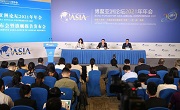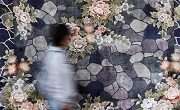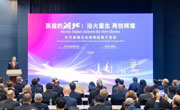Mothers like "Li Huanying" need more public support
During this year's Spring Festival period, the film "Hi, Mom" illustrated a daughter’s imagination of a "mom, let me love you again" story, which changed the theme of sacrificing out of love "for children" into "for mom". This film moved a large number of audiences. The phrase "Mom had been a middle-aged woman since the day I knew her" stroke the hearts of many mothers and children, and made us realize the heavy weight women undertook in being “mothers”.
In the eyes of children, mothers are defined by the parent-children relationship. A child has a mother from the moment of birth. However, mothers are not born as mothers. They used to be autonomous individuals. From the moment a woman becomes a mother and becomes closely connected with another human being, and during the process of providing unconditional love to her child, she learned to let go of a part of herself to embrace motherhood.
The movie let the protagonist travel back to the time before she was born, and gave her a chance to get to know her mother, Li Huanying, as an independent individual who was youthful and bright. After having a daughter, Li became a perfect mother who unconditionally loved her child. But because her child gave her a lot of trouble, and as Li competes with her colleagues, the light that was once in her dimmed. Here, the director's personal feelings in the narrative notwithstanding, we witness the tension between the “self” as an independent identity and the “mother” as a relational identity. Being a mother implies the extreme compression of an independent individual’s personal space.
China is the country with the highest percentage of working moms in the world. In reality, we see women doing their best to achieve their personal goals outside their role as mothers. The most common support system is intergenerational support, where the elder generation makes the sacrifice to let their children, who are the most important labor force in the family, stay competitive in the job market. Some families hire housekeepers to reduce domestic burdens. In addition, even when some mothers have to become housewives, many are still searching for ways to balance between work and family, such as doing e-commerce and group purchasing. We must realize all these methods are limited within the family. The self-actualization of women after they become mothers either has to take the sacrifice of other family members, or women themselves working to the extreme, or sacrifice women from the lower classes. These all lack external public support.
How do we create more personal spaces for women who are mothers? This is an issue for society at large. As people are pursuing better lives, we need institutional and social environments that are friendlier to children and families. We need to treat children as a collective wealth of the whole society, and hence provide nurturing support with more public attributes. This also needs us to reach a deeper understanding of gender equality. Gender equality does not equate to the two genders being identical. Instead, we need to see the differences between the genders, and encourage both genders to take equal responsibility in looking after their family. In this new developmental phase, we need a cooperative child-rearing system that has more communal characteristics, takes root in the community, and has the participation of multiple agents. This will encourage more women to be willing to, and have the courage to become mothers. It will let our population structure improve sustainably, and let women have more diverse and practical ways of achieving self-actualization.
Contributed by: Shi Yunqing, Contract Research Fellow, Center for the Study of Xi Jinping Thoughts on Socialism with Chinese Characteristics for a New Era, Deputy Director at the Gender and Family Sociology Research Lab at the Sociology Institute, Chinese Academy of Social Sciences
[ Editor: JYZ ]










More From Guangming Online
Medics from Fujian leave for Shanghai to aid in battle against COVID-19 resurgence
New int'l land-sea transport service to Indo-China Peninsula launched
Another makeshift hospital under construction in Shanghai
Tourists view tulips in Suiping County, Henan
In pics: blooming gagea flowers on grassland in Zhaosu, Xinjiang
Greek workers stage 24-hour general strike over high prices